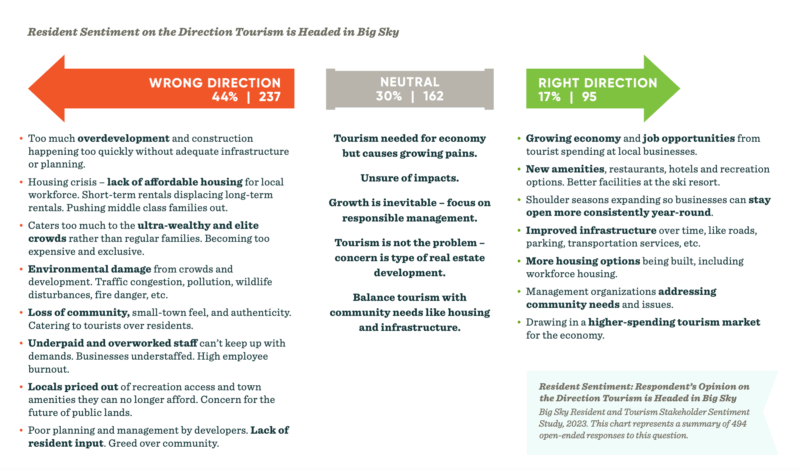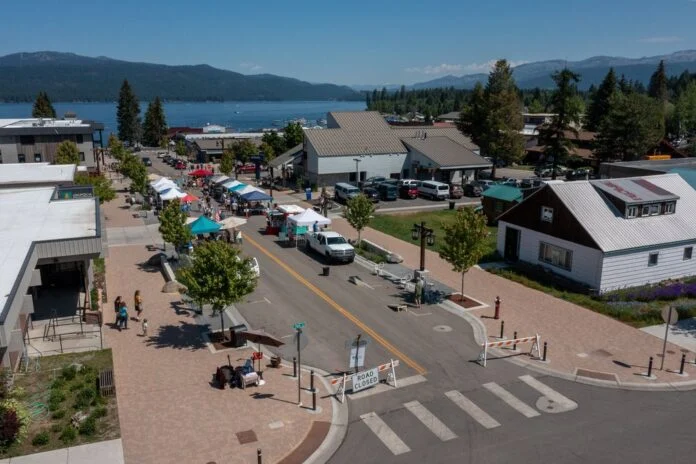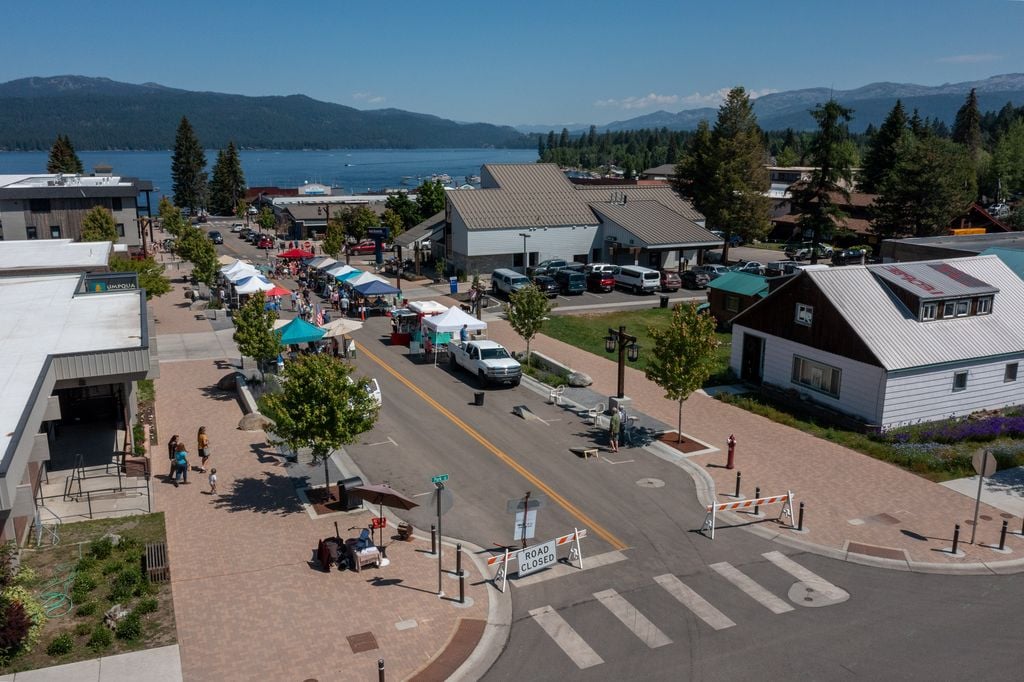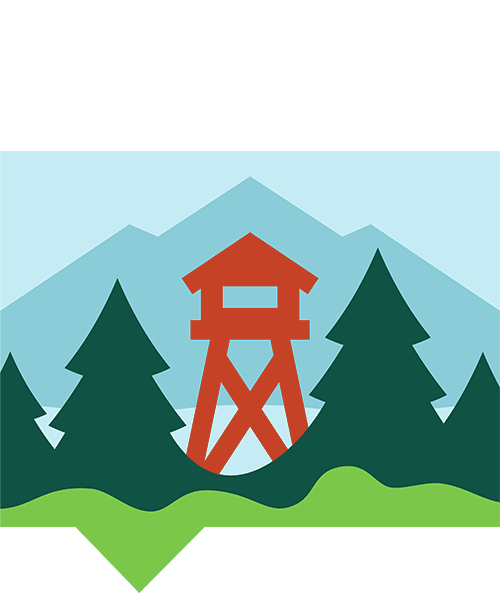The needs of local residents should come first in a long-term plan for guiding the growth of McCall’s tourism economy, according to the McCall City Council.
The council hosted a work session with the McCall Area Chamber of Commerce last Friday to discuss developing a joint tourism management plan.
The plan would outline broad strategies to better balance the economic benefits of tourism with stewardship of the community and environment. Focus areas could include culture preservation, workforce housing, protecting Payette Lake, and infrastructure improvements—or any other topics identified during a public scoping process.
“We’re definitely interested in this,” McCall Mayor Bob Giles said. “It’s a priority for us.”
McCall has seen a dramatic rise in tourism in recent years. Since 2021, the city’s 6% tax on short-term lodging has earned more than $2 million per year—or 61% more than the $1.3 million per year the tax earned from 2018 through 2020. As of mid-September, 395 licensed vacation rentals within city limits were contributing to the tax.
Council: sustainable tourism reliant on employees, housing
The surge in tourism following COVID exacerbated existing local shortages of employees and housing, two of the main pressure points in McCall’s tourism economy.
Addressing those challenges, council members agreed, should be central to any plan for sustainable tourism.
“We can’t have a service industry without people that live here,” council member Colby Nielsen said. “We have to build our foundation first. We have to get people to live here.”
“We were really aligned on that over here as well,” McCall Community Engagement and Public Relations Director Erin Greaves said.
The exchange between Nielsen and Greaves came after potential priorities for the plan were discussed in smaller focus groups of meeting attendees, including city staff, chamber officials, local citizens, and representatives from Brundage Mountain Resort and Tamarack Resort.
While the council is on board with developing a joint tourism plan with the chamber, Executive Director Sheila Francis must first clear the idea with the chamber’s board.
“Should the chamber decide to move forward, I expect we would start by building a leadership team and inviting other agencies to participate in the greater conversation,” Greaves told Valley Lookout after the meeting.
Without donors like you, this story would not exist.
Make a donation of any size here
If the project moves forward, Greaves said the city would likely issue a request for proposals from consultants who could help develop the plan. There is not currently an estimated cost for that work.
‘Destination Management’ approach
Kristin Dahl, a tourism planning consultant based in Hood River, Oregon, advised council members to consider a “destination management” approach to managing tourism in McCall, which involves regional coordination to plan sustainable tourism.
“A really good destination management planning process helps to create space and time for conversations for everyone in that ecosystem to come together, talk about what future success looks like, and then start to figure out how resources can align,” Dahl said.
In McCall, planning partners could include the Forest Service, Brundage, Tamarack, environmental groups, and other local businesses, residents, and organizations. The eventual plan would include strategies to help each partner meet its goals and needs related to tourism.
Public opinion could also be incorporated into the plan through resident surveys.
“It’s really about figuring out both the direction of change and then the speed of change that you want to move at,” Dahl said.
Destination management plans have helped develop bike share programs and shuttle bus routes in places like the Columbia River Gorge and Aspen, Colorado. Other western communities have also recently completed destination management plans, including Big Sky, Montana, and Jackson Hole, Wyoming.

Staffing key
While the roadmap provided by the plan could be helpful, Dahl emphasized the need for continued regional collaboration and investment in the plan.
“The piece that I think communities miss is that there has to be an investment in the coordination of that human capital over time,” she said.
April Whitney, a public relations consultant who represents the McCall Chamber and Brundage, noted that many local planning efforts are currently undertaken by volunteers, using the Valley County Recreation Advisory Council as an example.
“Every single person on that rec committee has a full-time job, and a lot of them are parents or single parents,” Whitney said.
Hiring someone whose full-time job is to coordinate the implementation of a tourism plan, as well as other regional plans, would be “a huge step forward,” she said.
Targeting the ‘right’ tourists
Another key principle of a destination management approach is marketing in alignment with the community. The McCall Chamber began following that principle in recent years by funneling most advertising into the spring and fall when tourism tends to be slower.
Francis, the chamber’s executive director, also noted an effort to market McCall to the “right” visitors—a comment that Nielsen said did not “sit well” with him.
“The right people message is by nature exclusionary. That just irks me every time I read or see it,” he said. “I think the right people are the young kids that come here to party and have fun. I think the right people are the families that come here to enjoy whatever we have. Like, everyone’s the right person.”
Whitney, who does the chamber’s digital advertising, clarified the strategy with Nielsen and said it is based on attracting tourists who will enjoy McCall’s existing amenities instead of those who would want to change it.
“We’re not talking necessarily about economic groups,” she said. “What we’re trying to do is match individuals’ interests with what McCall offers.”






